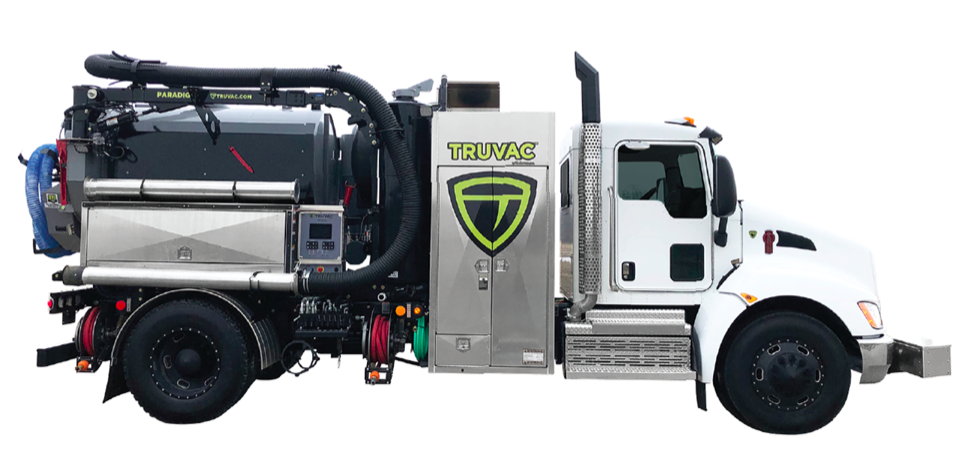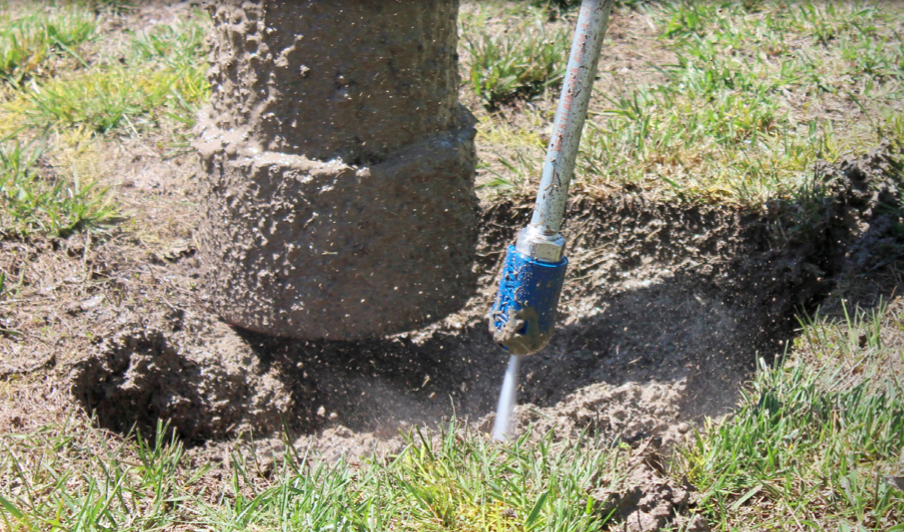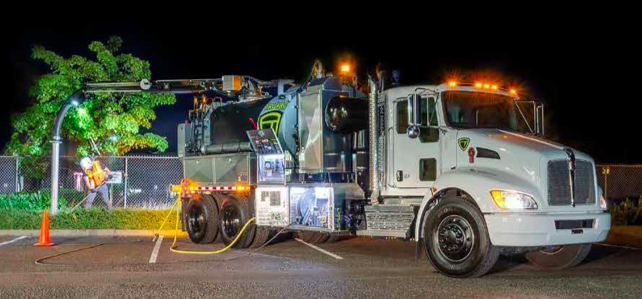Hydro excavation trucks like our TRUVAC line, are incredible tools. They power through rocks and packed dirt easily, and they work delicately around utility lines. Hydro-vac trucks help construction teams work more efficiently and, in many cases, more safely.
Vacuum trucks do come with their own set of risks that you should be aware of, and understanding how hydro-vac trucks work is important for using them safely.

Digging Deeper Into the Excavation Process
Hydro-vac trucks are used more than other types of excavation equipment for a few reasons. They introduce less pollution into the environment than other methods, are the least destructive to excavation projects and the least harmful to workers. Hydro-vac trucks use highly pressurized jets of water and air to loosen and break up surfaces, like packed dirt. Next, they deploy a powerful vacuum to remove and store the material that they’ve broken up with the compressed air and water.
The material removed from the excavation site can then be moved to a different location for safe and proper disposal, loaded onto another truck, or used to fill in and level the excavation site once the digging operation is complete.

Safety Considerations for Excavation
According to the Legal Information Institute, there are several regulations excavation workers must comply with before beginning a job.
Safety During Trench Excavations
A safe, accessible way to escape from any dug trenches of 4 feet deep or deeper must be provided. Means of escape must be placed no more than 25 feet away from the location of the employees working.
Required Mobile Vehicle Warnings for Vacuum Trucks
When a mobile earthmover, like a hydro-vac truck, is next to any kind of excavation site, a warning system must be in place if the edge is not clearly visible. The warning system may include barricades, hand signals, mechanical signals or stopping logs.
Required Protections Against Water Accumulation
Areas where water may accumulate must have precautions put into place to stop dangerous rise of water levels. Hydro-vac trucks have water removal systems built into them already to facilitate the water removal process.
Drainage of natural water and ground water should be diverted away from the excavated area, and this process should be overseen by a professional.
Employees Must Have Protection From Falling Debris
Workers should always be protected from falling debris, especially since excavation produces loose soil that can pose a danger. Removing loosened material, erecting barricades and keeping equipment and materials away from edges can reduce the risk of accidents caused by falling debris.
Conduct Regular Inspections
Vacuum trucks operate in a mobile capacity, which means that vacuum truck work sites are constantly changing.
Inspect your job site daily to identify possible dangers, like possible fall hazards, equipment that is placed too close to edges and water accumulation.
Inspect your vacuum truck each day as well. Look for any build-up of debris that could impede the vacuum’s suction and inspect components that may need to undergo basic upkeep.

Considerations for Workers Safety
Promoting safe working habits to prevent injuries and falls should be the highest priority on your job site. Though a hydro-vac truck will reduce many of your risks significantly, they can’t eliminate them completely. Make sure that you’re following these guidelines to keep your workers safe.
Everyone on your job site should adhere to the following safety procedures:
- Employees should be aware of all risks that may occur during hydro-vac truck operation and of the safety procedures that have been put into place.
- Your workers must be educated on the standard operation and safety procedure associated with using a hydro-vac truck. Follow operating manuals to minimize any risks.
- Employees and contractors must be fully equipped with relevant personal protective equipment (PPE). Relevant PPE usually includes safety glasses, hard hats, face shields, gloves, hearing protection and rubber steel-toed boots.
- Inspect all confined excavation spaces and hydro-vac trucks before work begins.
Considering renting but never used a piece of equipment like this before? That’s ok! Our team will provide operator training upon pickup of your rental unit to ensure you know how to use it safely and effectively. We adjust this training to your specific experience and knowledge level to ensure you are comfortable with your hydro vac truck and get answers to any questions you may have. We’ll even check out your job site on the first day to ensure you’re operating the vehicle correctly and that it’s the right fit for your project. Safety is our priority here at Haaker Underground! Reach out now to learn more about our hydro vac trucks!
